Lung Health & Safety: Social Media Resources
Raise awareness about lung health by sharing these graphics and sample posts on your social media channels. You may also be interested in our other social media resources focused on COPD and asthma.
- Use hashtag: #BreatheBetter
- Tag us! @BreatheBetter on X and @BreatheBetter on Facebook


- Don't smoke or vape. Avoid secondhand smoke.
- Avoid air pollution.
- Use protective gear.
- Be physically active.
- Aim for a healthy weight.
- Get regular check-ups.
- Stay up-to-date on vaccinations.


Quitting smoking helps your lungs work better and helps you breathe easier.
Want to quit smoking? Don't do it alone! Share your plans with family or friends. Join a support group. Find a quit buddy.
Talk to a healthcare provider for resources to support you.
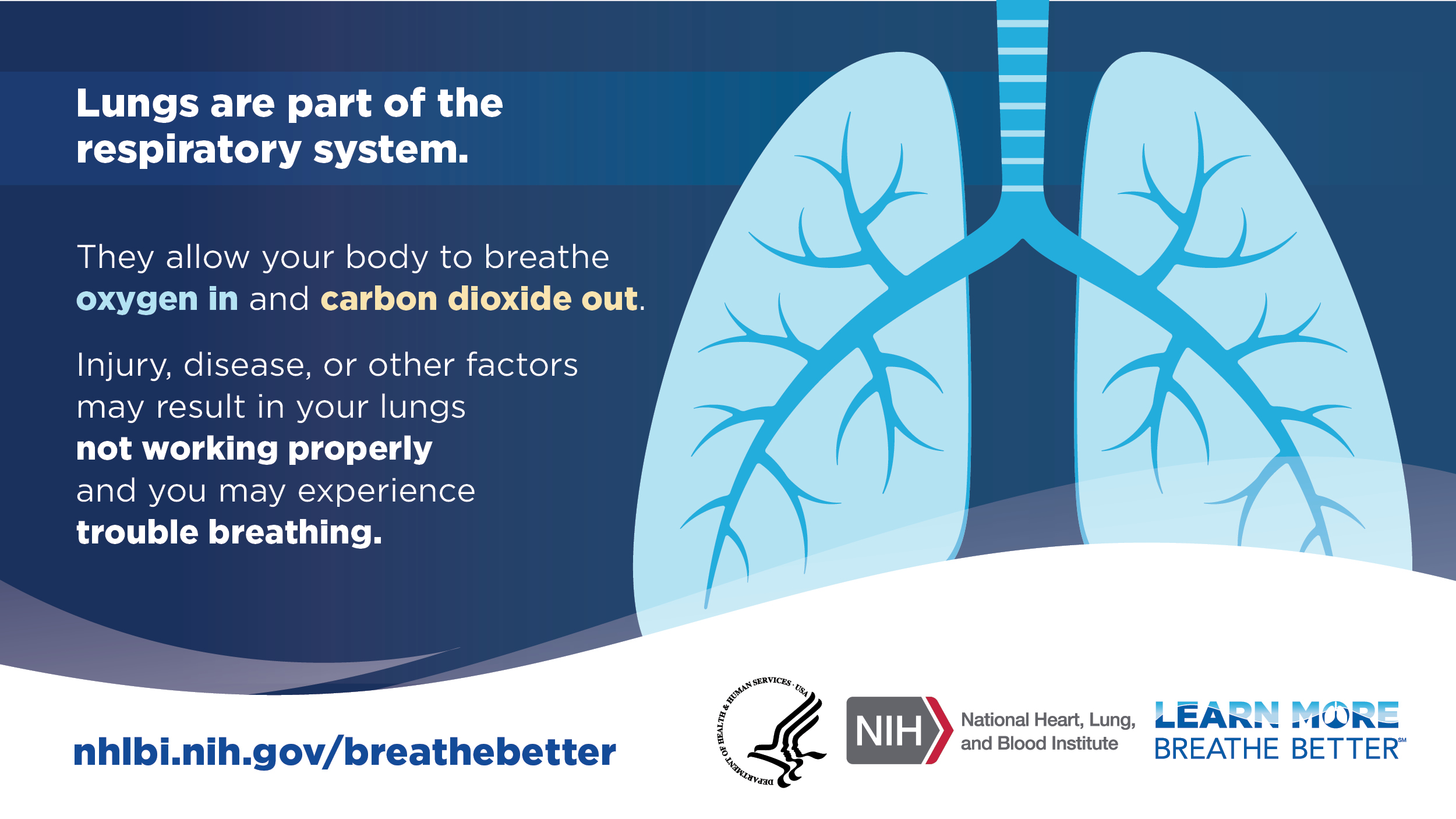

They allow your body to breathe oxygen in and carbon dioxide out.
Injury, disease, or other factors may result in your lungs not working properly and you may experience trouble breathing.
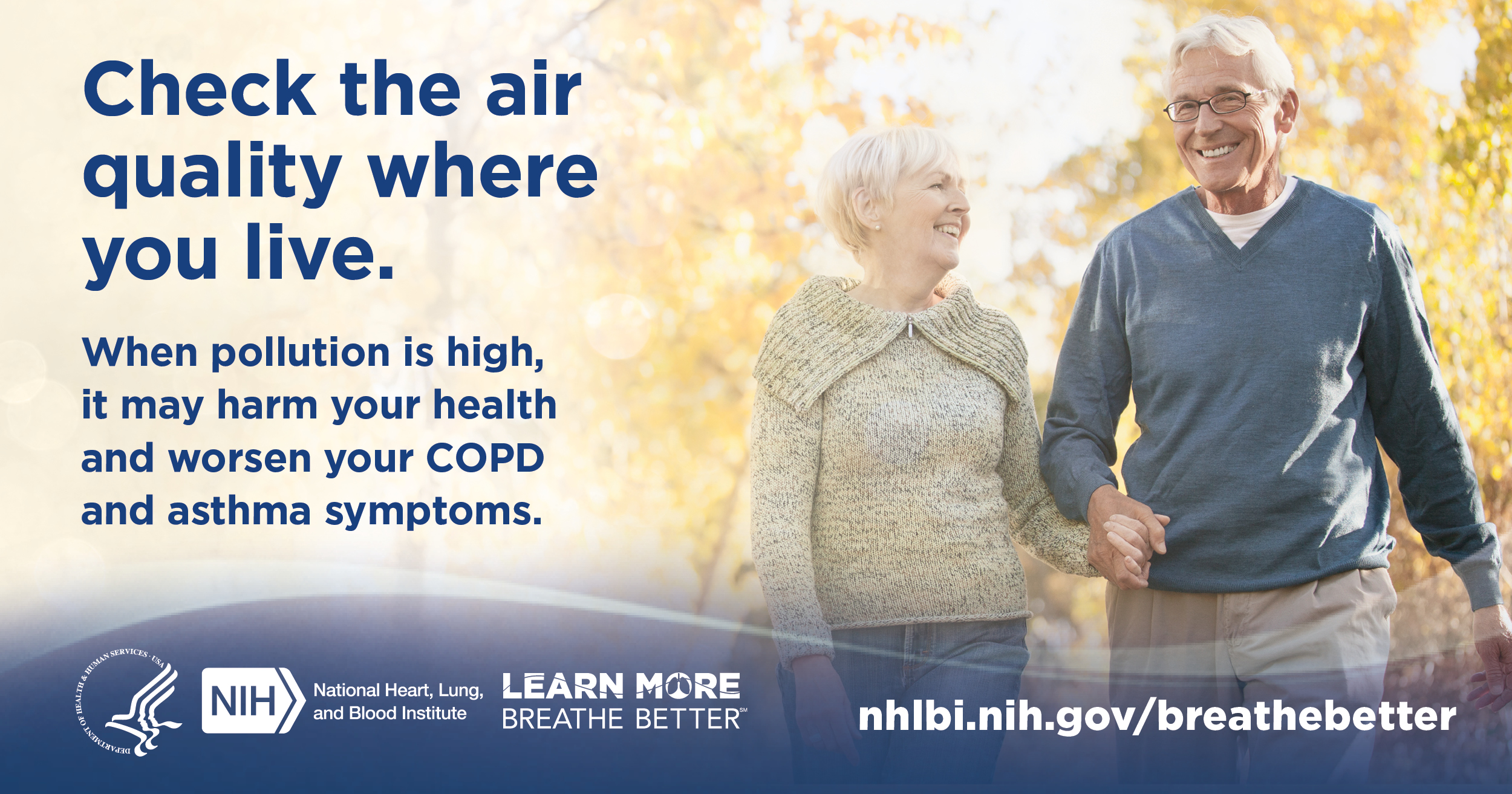

When pollution is high, it may harm your health and worsen your COPD and asthma symptoms.
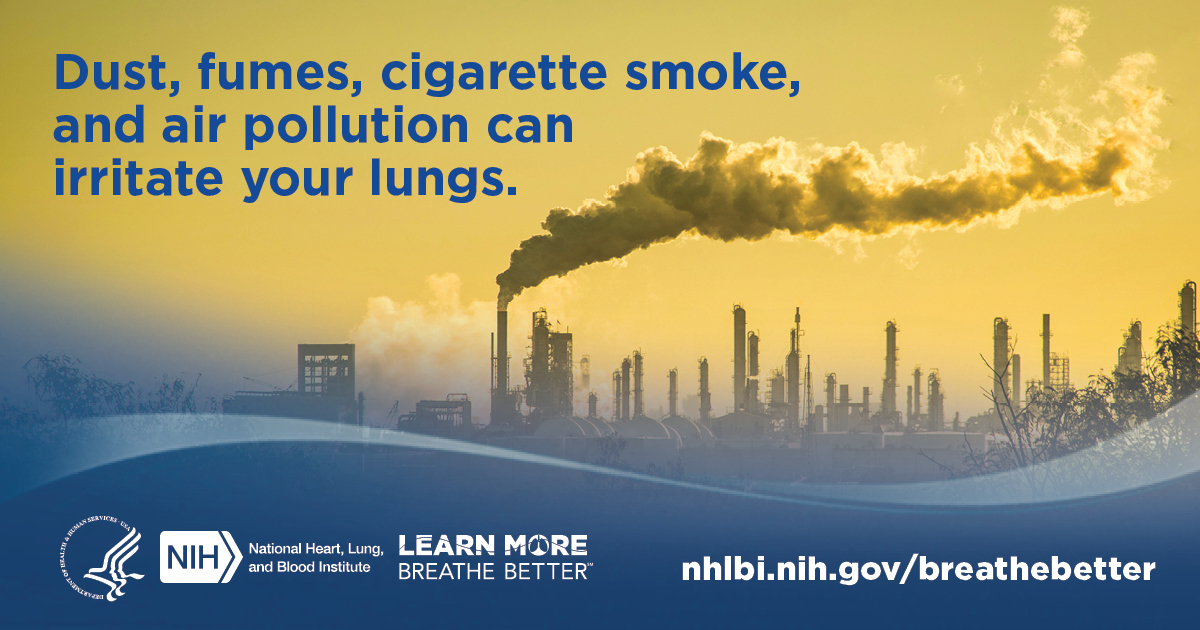


Don't wait to contact your health care provider if you're experiencing any of these serious symptoms:
- Shortness of breath
- Wheezing
- Ongoing cough
- Chest tightness

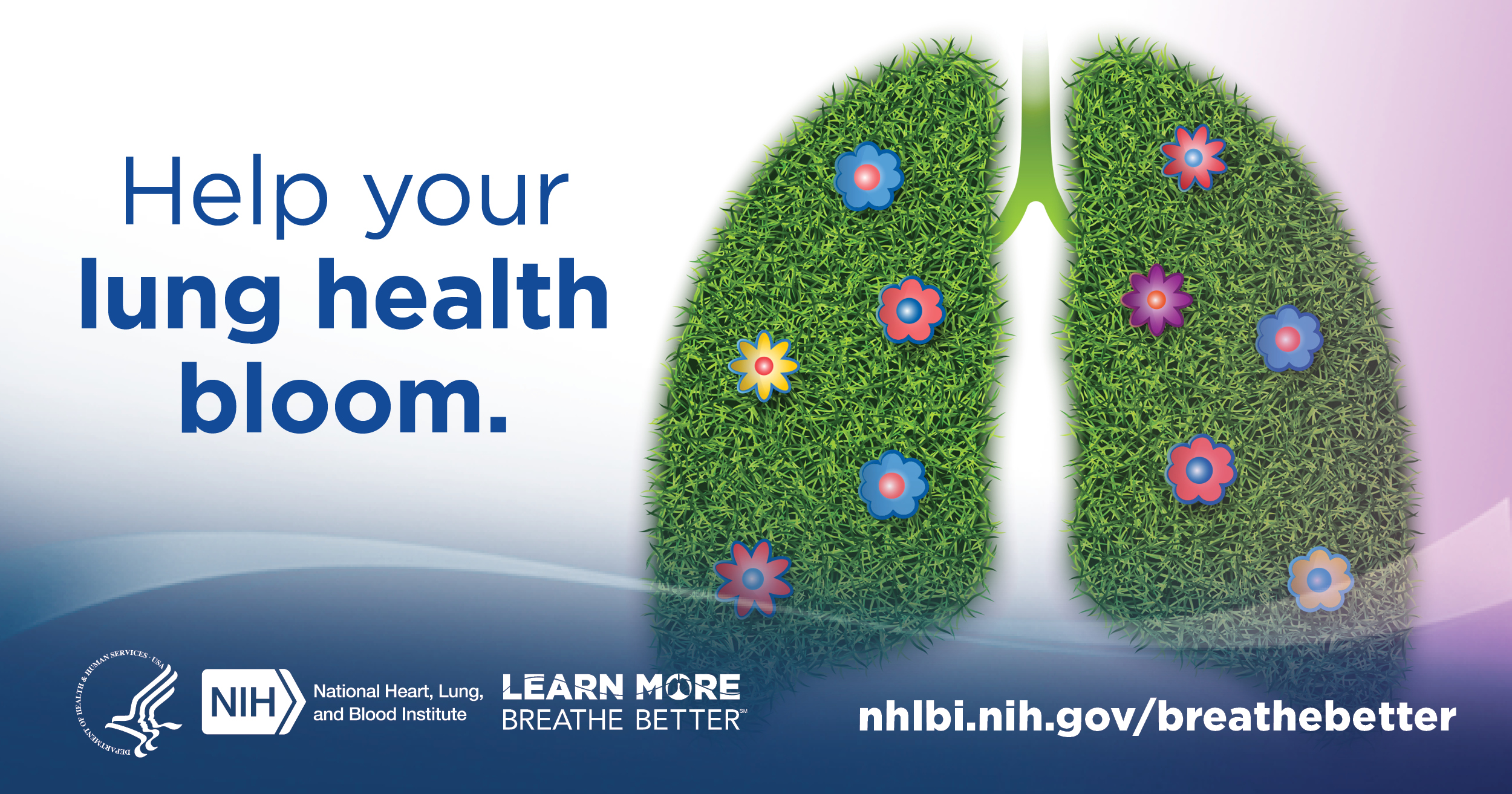


A dry powder inhaler contains pre-set doses of medicine in powder form. When you take a deep, fast breath in from the inhaler, the medicine is released into your airways.
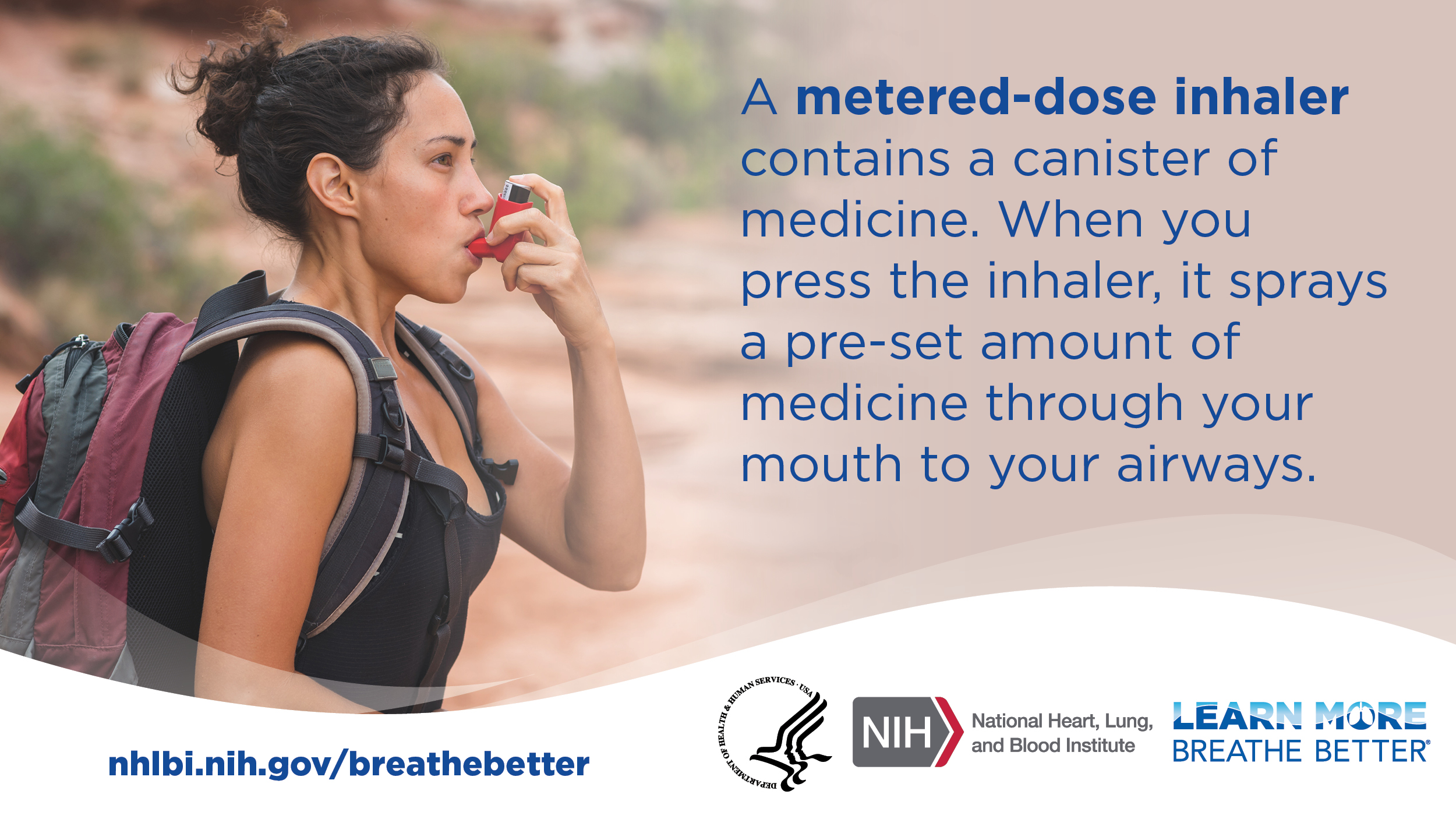

A metered-dose inhaler contains a canister of medicine. When you press the inhaler, it sprays a pre-set amount of medicine through your mouth to your airways.
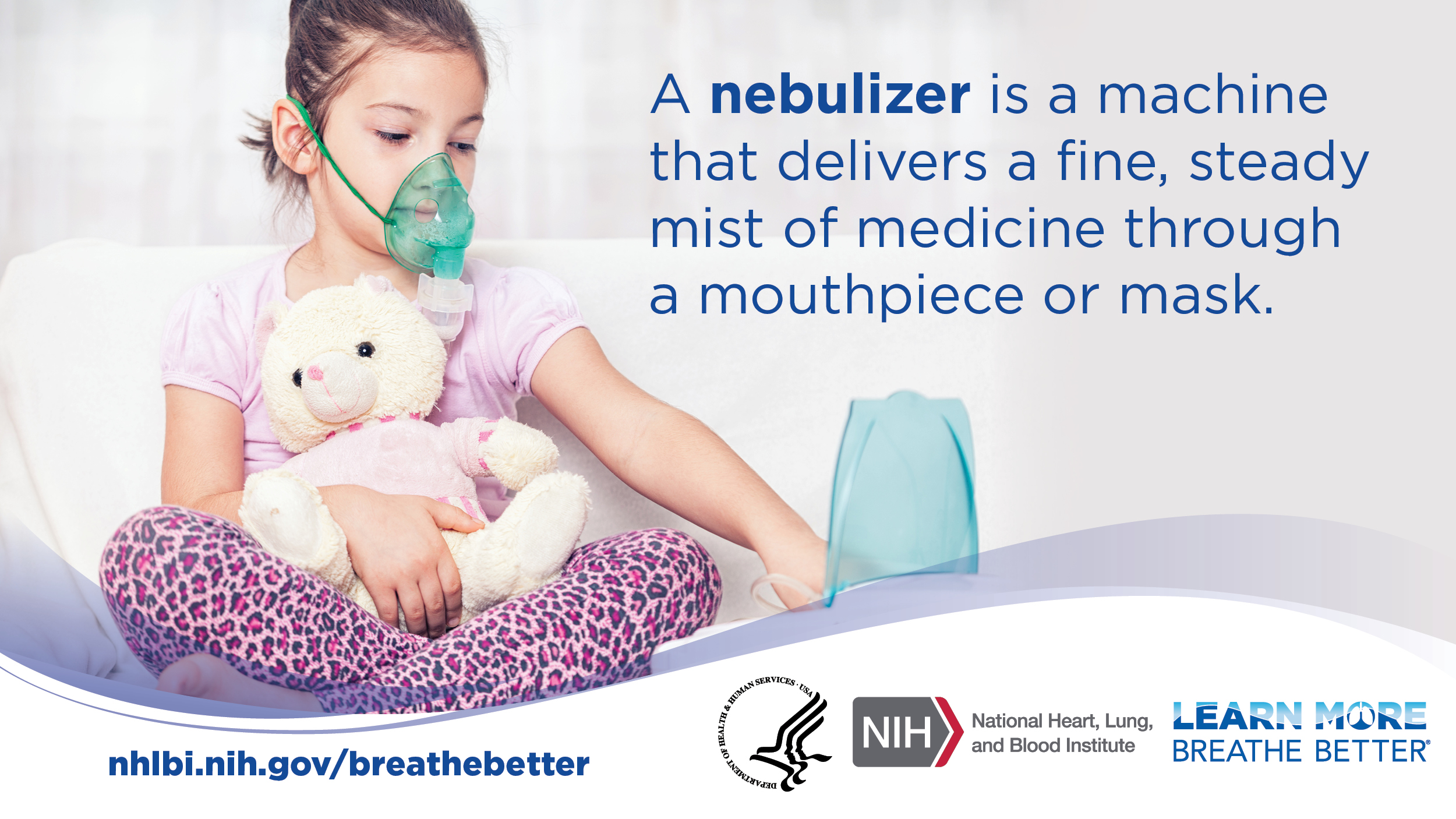

A nebulizer is a machine that delivers a fine, steady mist of medicine through a mouthpiece or mask.
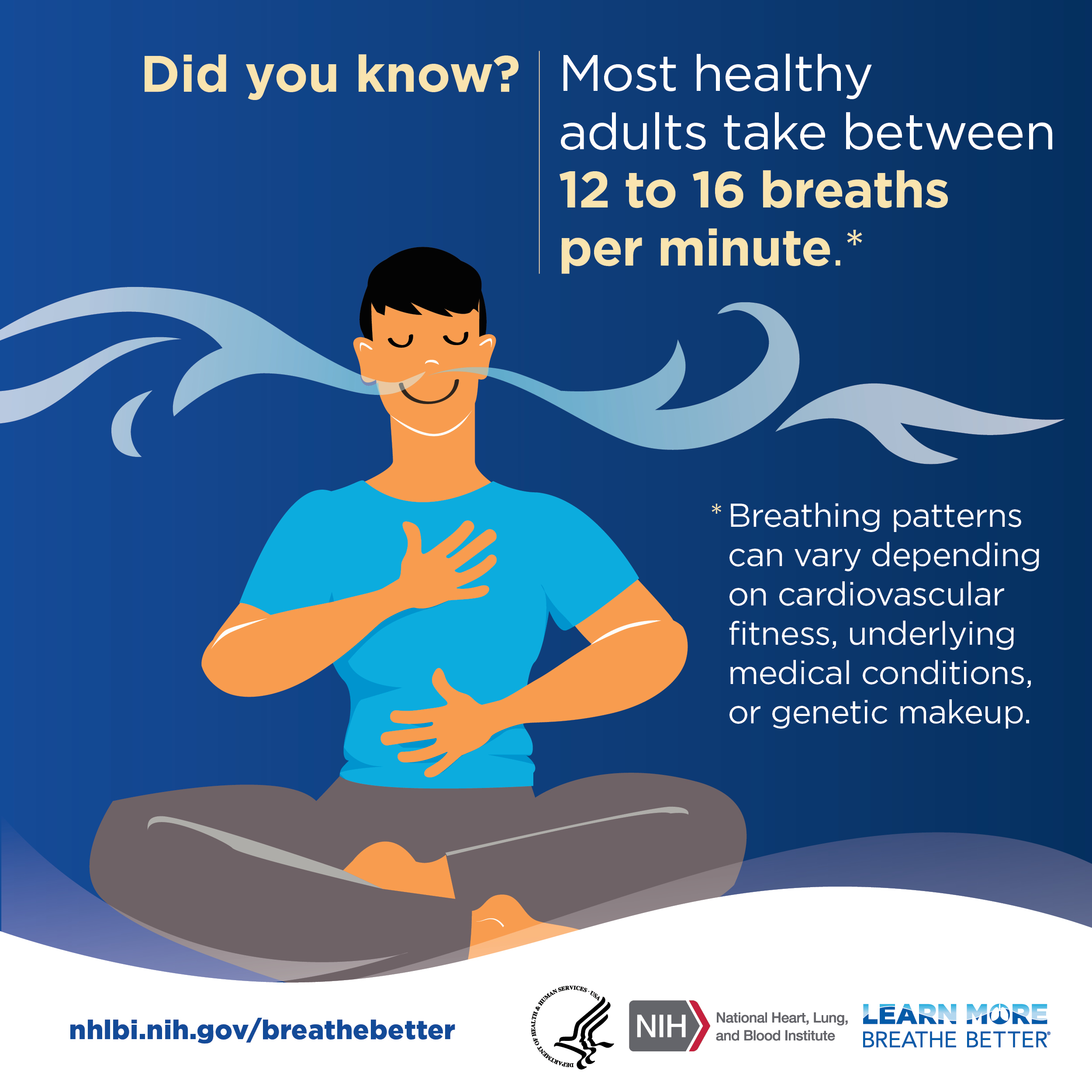

Most healthy adults take between 12 to 16 breaths per minute.
Breathing patterns can vary depending on cardiovascular fitness, underlying medical conditions, or genetic makeup.


Your left lung takes up less space than your right because it needs to make room for your heart.


Human lungs can hold about 6 liters of air. That's the volume of 3 large soda bottles.
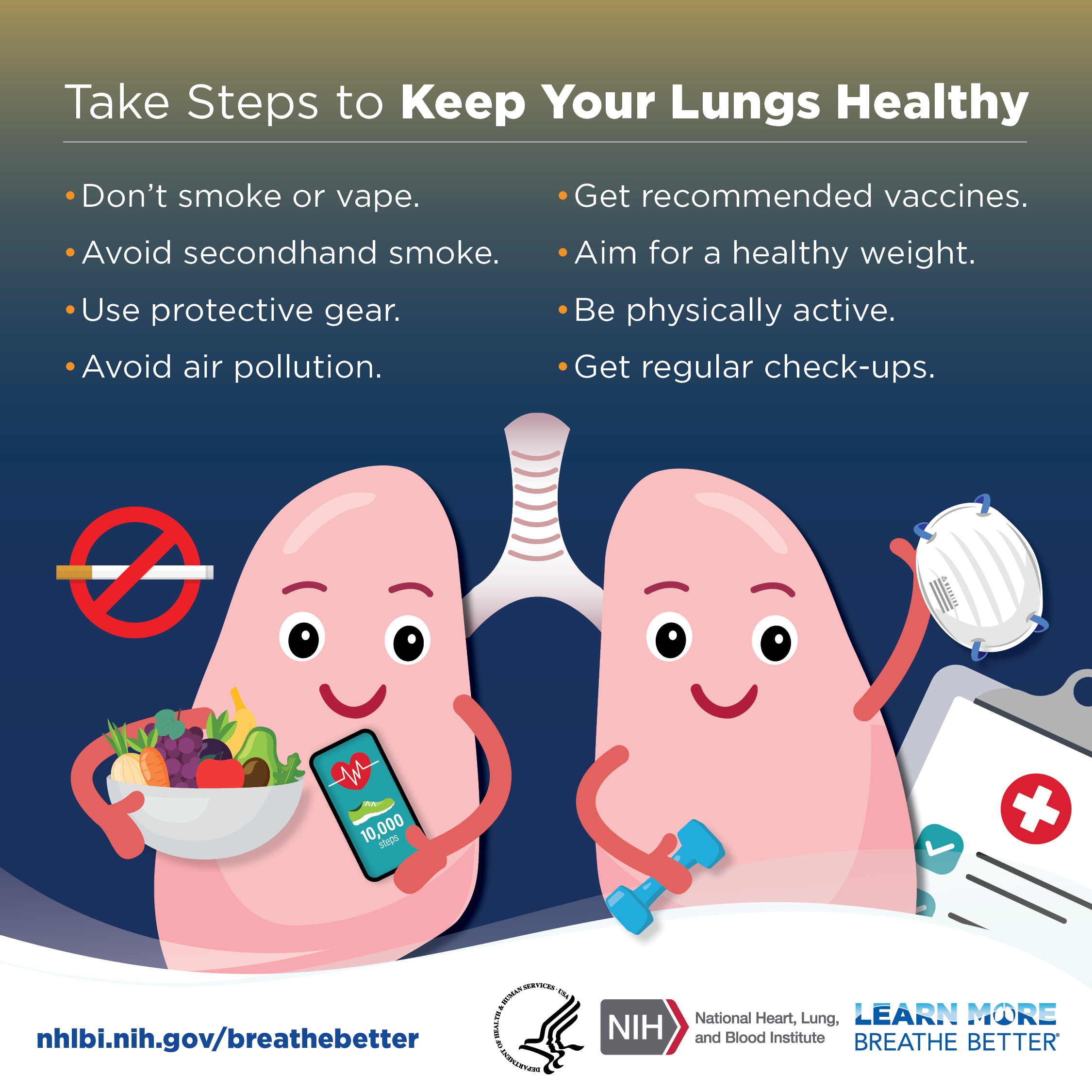

- Don't smoke or vape.
- Avoid secondhand smoke.
- Use protective gear.
- Avoid air pollution.
- Get recommended vaccines.
- Aim for a healthy weight.
- Be physically active.
- Get regular check-ups.

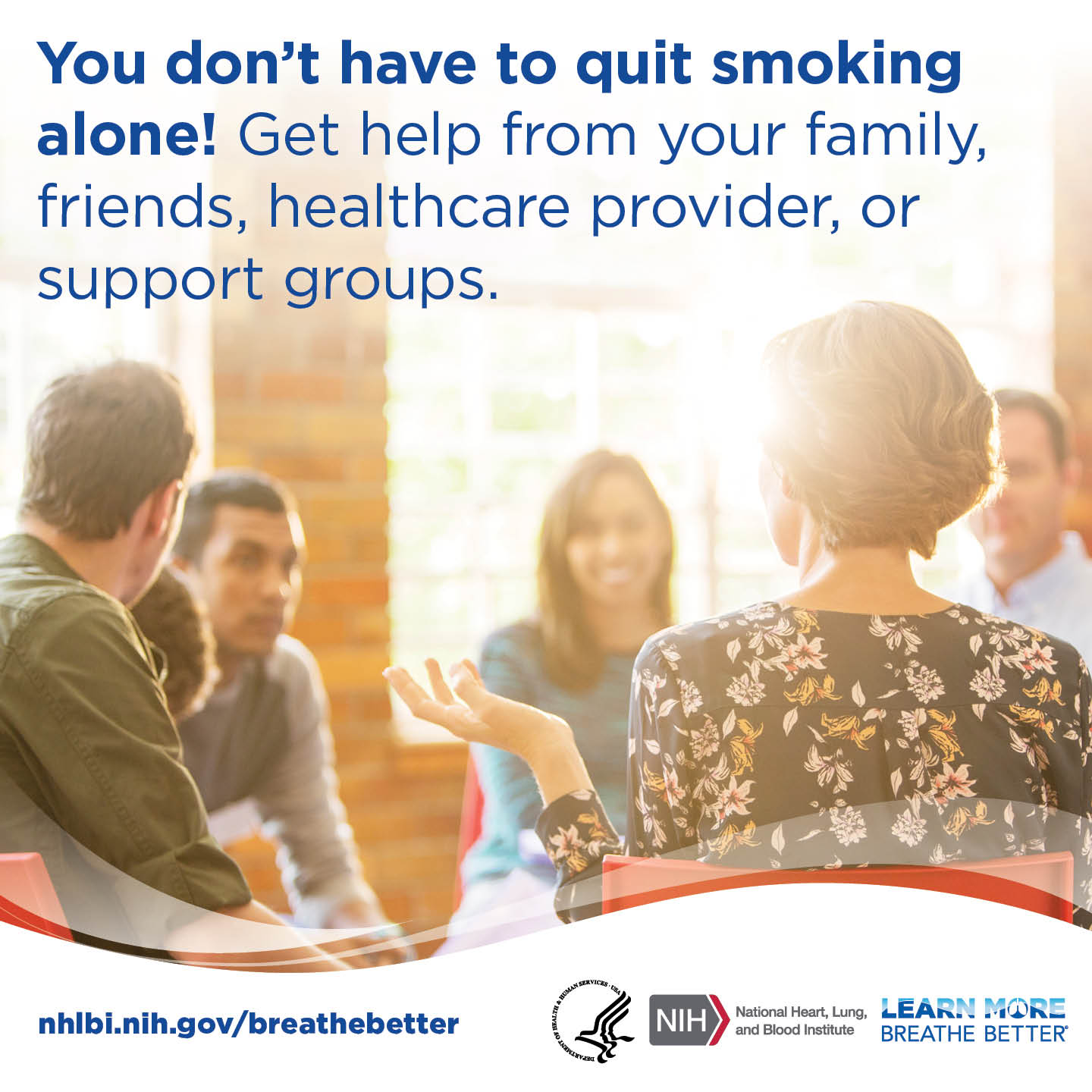

Get help from your family, friends, healthcare provider, or support groups.
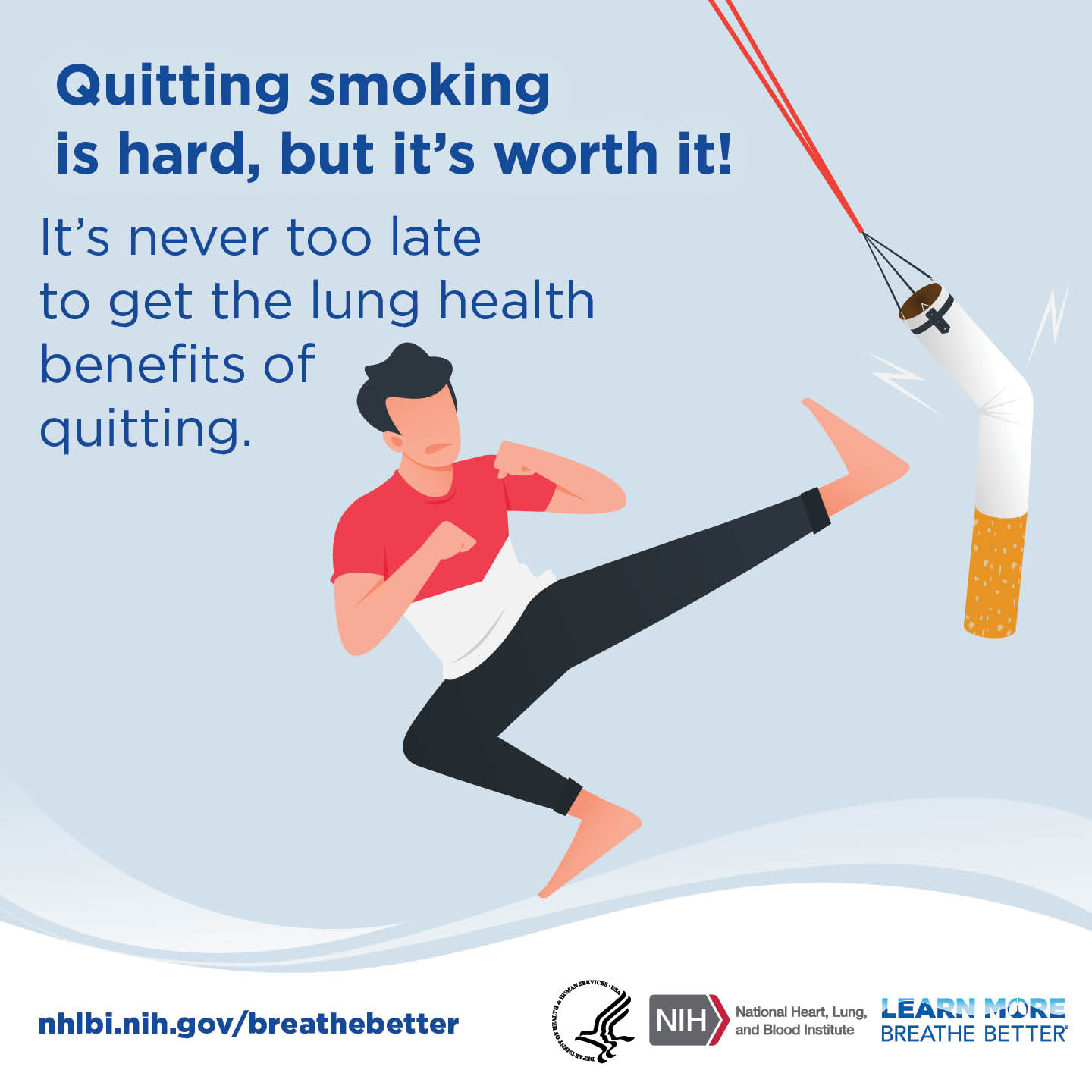

It's never too late to get lung health benefits of quitting.
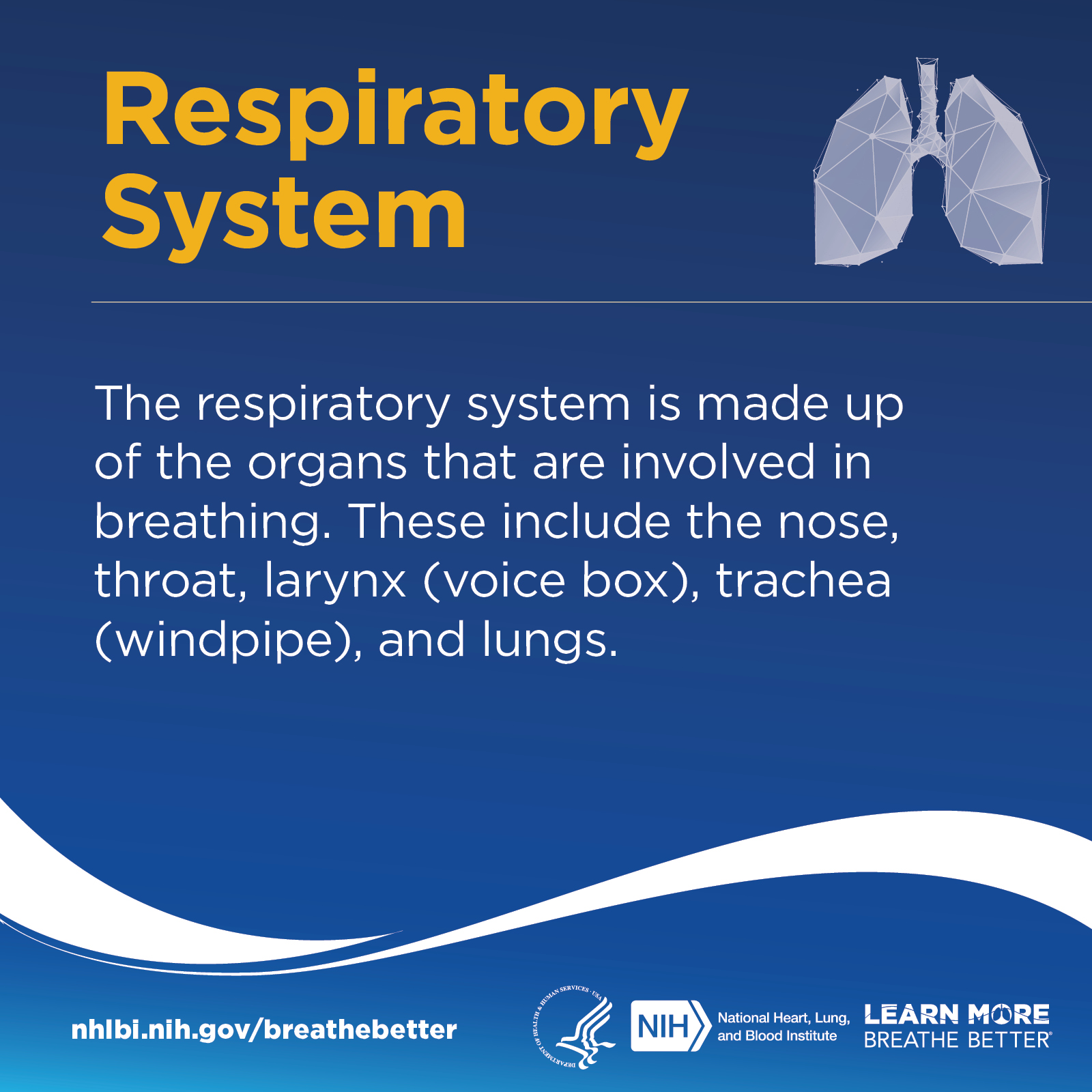

The respiratory system is made up of the organs that are involved in breathing. These include the nose, throat, larynx (voice box), trachea (windpipe), and lungs.
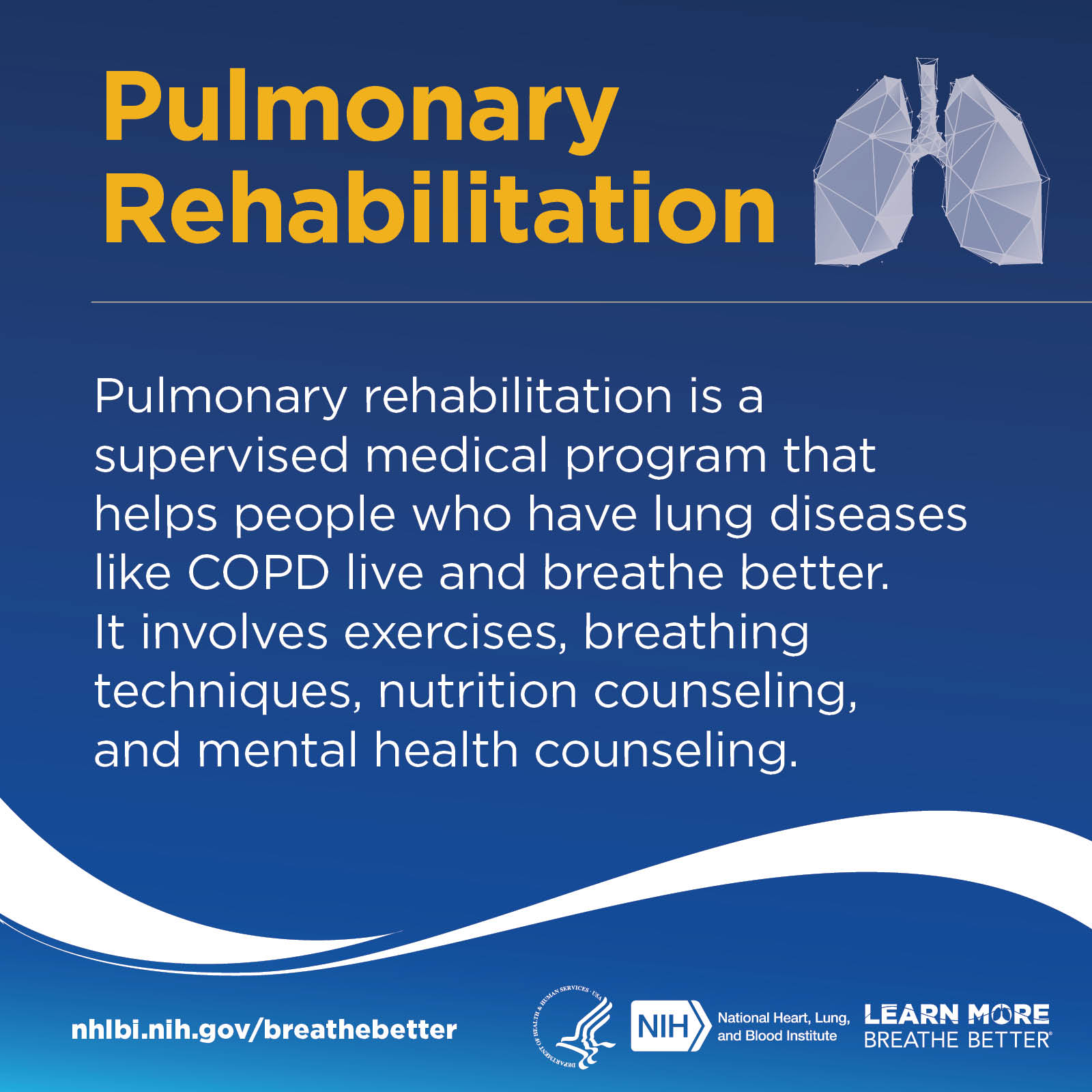

Pulmonary rehabilitation is a supervised medical program that helps people who have lung diseases like COPD live and breathe better. It involves exercises, breathing techniques, nutrition counseling, and mental health counseling.

